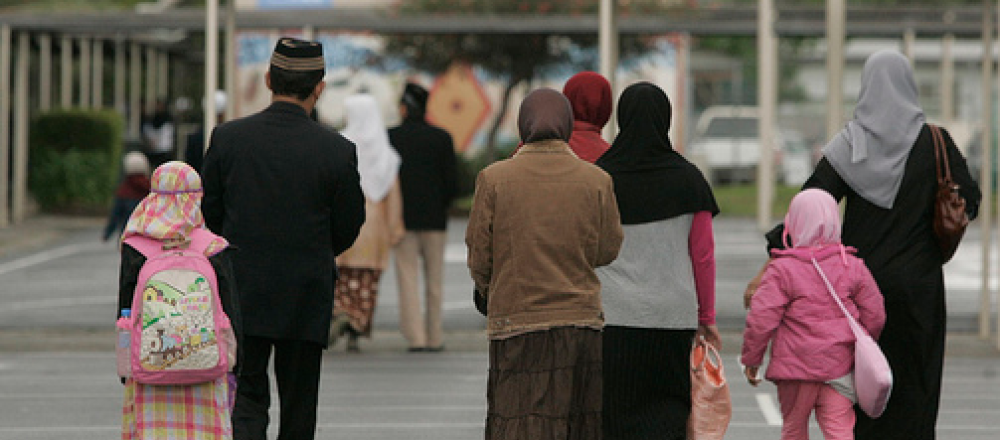In the aftermath of 9/11, I have a clear memory that stands out from the haze of shock and despair. We are in our lounge room, and I’m 11 years old. Dad has called a “family meeting”, and for once, there isn’t the usual chatter and giggles that precede a gathering of the six of us in the one room. Dad looks grim, his eyebrows drawn together over the dark pools of his eyes.
“We have to be very careful now,” he says. “Things have changed because of these attacks, and people are going to want to blame someone. If anyone asks where you’re from, say you’re from Fiji, or that you’re Indian. Don’t say that you’re Muslim. If anyone asks what you believe in, or what religion you belong to, just say that you’re Indian, and don’t say anything else.”
My mum stops wearing her hijab in public after this, and it feels strange to see her without the motif of her faith and her identity. It feels like we’re play-acting, or undercover. I start eyeing people in the streets warily, waiting from some kind of attack.
When I think of this time in my life, I remember feeling bewildered and frustrated that there was such a level of mistrust and misunderstanding about Islam. Whenever journalists used the term “Islamophobia”, I felt a rush of anger – what was there about our religion, our personal beliefs that was so frightening to people that they developed an actual phobia about it?
I remember the two faces of racism – the violent anger we encountered on the streets when mum started wearing her hijab again, people shouting at her to “get the fuck out of our country”, and then the uncomfortable benevolent racism of strangers approaching us to say that we were “welcome here”, in this country that had been our home for the past 10 years.
Now, over a decade later, in the aftermath of the Sydney Siege and the Charlie Hebdo attacks, and in the face of growing radicalism in the Australian Muslim community, it’s like being transported back to that time. I no longer identify as a Muslim myself, and with my Australian accent, clothes, and lifestyle, rarely am associated with Islam.
But my parents are right back in 2001, tensely awaiting the next time someone spits in their face, refuses to serve them at the airport, or tells them to fuck off. Mum owns a café in the small town they live in, and after the Sydney siege, she was anxious about opening, worried that maybe she shouldn’t serve customers wearing her hijab. Her regulars all told her that they didn’t care, that she was (still) welcome here, in their country, to make them coffee and operate a business.
On one hand, I’m grateful to the people who go out of their way to point out that not all Australians are “Islamophobic”, and that they can differentiate between radical Islamic groups and Muslims who just want to practice their faith and continue to live their ordinary lives as Australians. But at the same time, this sort of acknowledgment legitimises the idea that there’s any question as to whether Muslims are welcome in Australia – as if it’s a reasonable public debate that we should weigh in on.
There are unspoken ways to demonstrate support for Muslims that don’t rely on making religion the central identifier of an individual – just as we don’t label every caucasian Australian we meet by their religious affiliation, why can’t we label Muslims as Australians first, and Muslims second?
There is no way to adequately show non-Muslim Australians what it feels like to dread turning on the news in case there has been another terrorist attack involving Muslims, that will contribute to the wealth of material used by anti-Muslim commentators to condemn the entire religion. What it feels like to scan every public place for potential threats or racist attacks, to watch older Muslim relatives or friends over-pronounce their words in Australian accents to emphasise that they’re from here – that we’re all Australians together.
The true victims of terrorism are of course the individuals who have lost their lives, and those who have lost their friends, families and communities. But it bears remembering that everyday Muslims in Australia do not benefit from fundamentalist terrorist actions from minorities within the religion. They suffer alongside every other Australian who fears for their freedom, their safety, and their way of life as a result of terrorism.
—
Zoya Patel is a writer, editor, founder of Feminartsy, and a Right Now columnist. She tweets @zoyajpatel
Feature image: Petta Ruka/Flickr.


